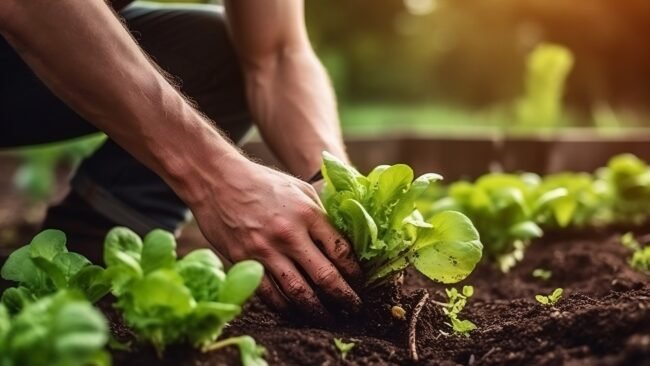Sustainable agriculture is a holistic approach to farming that seeks to balance environmental health, economic profitability, and social equity. As global food demands rise and environmental concerns intensify, sustainable agriculture offers a solution that addresses these challenges while ensuring long-term productivity and resource conservation. This article explores the principles of sustainable agriculture, its benefits, practices, and its role in promoting a more resilient and eco-friendly food system.
What is Sustainable Agriculture?
Sustainable agriculture refers to farming practices that are designed to meet current food needs without compromising the ability of future generations to meet their own needs. It emphasizes the integration of ecological principles into agricultural systems, aiming to enhance soil health, conserve water, reduce pollution, and support biodiversity.
The core principles of sustainable agriculture include:
- Environmental Stewardship: Minimizing environmental impact by using practices that protect soil, water, and air quality. This involves reducing the use of synthetic chemicals, managing waste responsibly, and promoting conservation.
- Economic Viability: Ensuring that farming practices are economically feasible and provide fair returns for farmers. Sustainable agriculture seeks to enhance farm profitability while maintaining long-term productivity.
- Social Responsibility: Supporting the well-being of farmworkers, rural communities, and consumers. This includes fair labor practices, community engagement, and ensuring access to healthy and nutritious food.
Benefits of Sustainable Agriculture
- Improved Soil Health: Sustainable agriculture practices, such as crop rotation, cover cropping, and reduced tillage, enhance soil fertility and structure. Healthy soils are better at retaining water, supporting plant growth, and sequestering carbon.
- Water Conservation: Efficient water management practices, such as drip irrigation and rainwater harvesting, help conserve water resources and reduce the risk of water pollution. Sustainable agriculture also promotes the use of organic matter to improve soil water-holding capacity.
- Reduced Chemical Use: By minimizing the reliance on synthetic fertilizers and pesticides, sustainable agriculture reduces the risk of chemical runoff and soil degradation. Integrated pest management (IPM) and organic farming methods are commonly used to manage pests and diseases naturally.
- Biodiversity Enhancement: Sustainable agriculture promotes the preservation of natural habitats and the use of diverse crop species. This approach supports biodiversity by providing habitats for beneficial organisms, such as pollinators and predators, which contribute to ecosystem health.
- Climate Resilience: By adopting practices that sequester carbon and reduce greenhouse gas emissions, sustainable agriculture helps mitigate climate change. Practices such as agroforestry and conservation tillage enhance the resilience of agricultural systems to climate variability.
Sustainable Agriculture Practices
- Crop Rotation: Rotating crops helps prevent soil depletion, reduces pest and disease pressures, and improves soil fertility. By varying crops planted in a field, farmers can enhance soil health and reduce the need for chemical inputs.
- Cover Cropping: Planting cover crops, such as legumes and grasses, during the off-season helps protect and enrich the soil. Cover crops prevent erosion, add organic matter, and improve soil structure and nutrient content.
- Conservation Tillage: Conservation tillage techniques, such as no-till or reduced-till farming, minimize soil disturbance and preserve soil structure. This practice helps prevent erosion, improve water retention, and reduce fuel consumption.
- Organic Farming: Organic farming avoids synthetic chemicals and relies on natural methods for soil fertility and pest management. Organic practices include composting, biological control of pests, and the use of organic fertilizers and pesticides.
- Agroforestry: Agroforestry integrates trees and shrubs into agricultural systems, providing multiple benefits such as improved soil fertility, enhanced biodiversity, and additional income sources. Trees can act as windbreaks, reduce soil erosion, and provide habitat for wildlife.
- Integrated Pest Management (IPM): IPM is a comprehensive approach to pest control that combines biological, cultural, mechanical, and chemical methods. The goal is to manage pests in an environmentally responsible way, reducing the need for chemical interventions.
The Role of Technology in Sustainable Agriculture
Technological advancements are playing a crucial role in advancing sustainable agriculture. Innovations such as precision farming, drones for crop monitoring, and smart irrigation systems enhance the efficiency of farming practices and reduce environmental impact. Precision farming uses data and technology to optimize input use, while drones and sensors provide real-time information on crop health and soil conditions.
The Future of Sustainable Agriculture
The future of sustainable agriculture involves continued innovation and the adoption of practices that enhance productivity while preserving natural resources. Research into new crop varieties, soil management techniques, and sustainable inputs will drive progress in this field. Additionally, increasing consumer awareness and demand for sustainably produced food will support the growth of sustainable agriculture practices.



COMMENTS